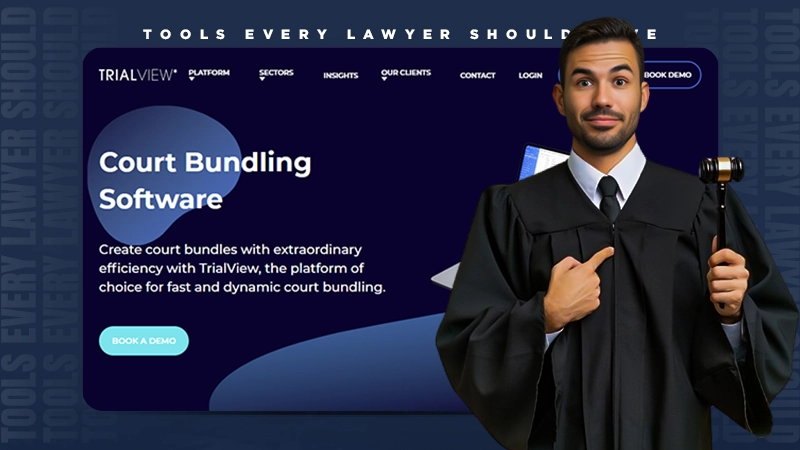Even today, establishing an online presence relies heavily on link-building. For legal practices, a tailored approach to this practice is crucial given the distinct requirements of the industry.
Law firm websites can rise to the top of Google in the legal industry with a strong link-building campaign. Marketing rules also exist for lawyers and law firms, this article will explore the nuances of link-building customized for law firms, shedding light on strategies, obstacles, and advantages specific to this field.
Specialized Link Building for Law Firms
Link building, or the process of acquiring hyperlinks from other websites to your own, is critical for search engine optimization.
It involves not only increasing the number of inbound links but also ensuring their quality and relevance. For law firms, this process becomes even more specialized due to the distinct nature of legal services and the competitive online environment they operate.
Law firms often target a specific niche or practice area, such as personal injury, family law, or corporate law. Therefore, link building for law firms should align with these niches to ensure relevance and authenticity. A link from a reputable legal website carries more weight than a generic link, signaling credibility to search engines.
Industry-Specific Requirements of Link Building
Law firms can use a variety of strategies to build links. One of the most effective strategies is to create authoritative resources on complex topics that website owners can use in their articles.
Let’s cover the industry-specific requirements of law firms to build links.
- Content Quality and Legal Expertise
Credibility and expertise are essential in the legal world. You should create high-quality and informative content that can showcase the law firm’s knowledge and authority.
This could include blog posts, legal guides, case studies, and white papers that address common legal issues, changes in legislation, or recent court rulings. Content that offers genuine value to readers is more likely to be shared and linked to by other reputable sources.
- Establishing Local Authority
Local authority holds significant importance for legal firms operating within specific regions. Therefore, link-building efforts should extend to local directories, legal associations, and community websites. These local links not only enhance visibility but also reinforce credibility within the community.
- Guest Posting and Thought Leadership
Guest posting on reputable legal websites and industry-specific platforms can be a valuable link building strategy. Contributing insightful articles allows law firms to demonstrate their thought leadership, share expertise, and gain exposure within their target audience.
These guest posts can include links back to the firm’s website, offering a link-building opportunity while also showcasing the firm’s legal acumen.
Now, let’s look at the challenges faced in legal link building in the following section.
Navigating Challenges in Legal Link Building
While the potential benefits of link-building for law firms are substantial, navigating the challenges is essential to ensure a successful strategy.
- Ethical Considerations
Adhering to strict ethical guidelines is extremely important in the legal industry, including link building. Firms must ensure their links appear on reputable websites and refrain from associating with irrelevant sources. Furthermore, the firm’s reputation can get damaged by linking to incorrect legal information, thus careful investigation and due diligence are required.
- Competition and Authority
Law is a highly competitive field, both offline and online. Reputable legal websites are often bombarded with link requests, making it challenging for new or smaller law firms to establish themselves.
Gaining links from authoritative legal sources can be particularly difficult, as these websites prioritize content from well-established firms. Overcoming this obstacle requires a strategic approach, focusing on creating exceptional content and leveraging personal connections within the legal community.
- Building Relationships
Effective link-building involves relationship-building with webmasters, bloggers, and legal influencers. Cultivating these relationships takes time and effort, as it requires demonstrating the firm’s expertise, trustworthiness, and the mutual benefits of collaboration.
Personalized outreach, engaging in meaningful discussions, and offering to contribute value to the target website can foster positive connections.
Benefits of a Targeted Link Building Strategy for Law Firms
An effective link-building strategy can help your website rank higher on Google, which will make it easier for prospective customers to find it. Here are some benefits provided by a targeted link building strategy.
- Enhanced Online Visibility
In today’s digital age, a strong online presence is non-negotiable. A well-executed link-building strategy can significantly enhance a law firm’s visibility in search engine results, making it easier for potential clients to find them when seeking legal services.
- Authority and Trustworthiness
Quality inbound links from reputable legal sources can establish the firm as an authoritative voice within its practice area. Search engines recognize such signals, resulting in higher rankings and increased organic traffic.
- Targeted Traffic
Relevant link-building directs qualified traffic to the law firm’s website. When links are strategically placed within relevant content, incoming traffic is more likely to convert into clients, thereby boosting the firm’s client acquisition efforts.
- Long-Term Value
A successful link building strategy can have lasting effects. High-quality links continue to drive traffic and improve search engine rankings over time, ensuring a steady flow of potential clients to the law firm’s website.
Final Thoughts
Link building is an essential aspect of law firm marketing. The specialized nature of legal services demands a unique approach that prioritizes content quality, relevance, and ethical considerations.
Creating a website for your law firm does not guarantee your success, you also need to work on your website and improve its reputation.
While challenges exist, the benefits of a well-crafted link-building strategy are well worth the effort. By navigating these challenges and leveraging the advantages, law firms can establish themselves as authoritative voices in their practice areas, driving targeted traffic and enhancing their online visibility for years to come.
![How to Fix Facebook Marketplace Messages Not Showing on Messenger? [Working Tricks - 2024]](https://ityug247.com/wp-content/uploads/2024/01/facebook-marketplace-messages-not-showing.webp)







